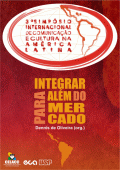Ações Afirmativas: a redenção de povos oprimidos ou a perpetuação da exploração?
DOI:
https://doi.org/10.11606/extraprensa2010.77189Keywords:
The media role, Affirmative action, Social movements, Laws, CultureAbstract
The concept of Affirmative Action in Brazil, nowadays, wins in the end strengthen the government of former president Fernando Henrique Cardoso (1994-2002) by putting into practice the precepts of international conventions and treaties, such as the World Conference against Racism, Racial Discrimination, Xenophobia and Related Intolerance, in Durban, South Africa. The meeting pointed to the perversity of the system, a crime against humanity. Most countries in the Conference ratified agreements on the deployment of so-called affirmative action policies as a way to cover part of the legacy of forced labor that many economies have strengthened. Soon after the Conference, the Brazilian government implemented a Quota Program within some ministries (Agriculture Development and Agrarian Reform, Justice and Foreign Affairs), by way of social repair. The thesis work intends to show experiments in progress, like the city of Piracicaba, interior of São Paulo, in the implementation of the Law of Quotas of public service, subject to 20% of places to African descent, securing a 40% stake in official advertisements, and other laws and programs aimed at marginalized segments of society, like the blacks, under the application of so-called Affirmative Action.
Downloads
Downloads
Published
Issue
Section
License
Ao submeter qualquer material científico para Extraprensa, o autor, doravante criador, aceita licenciar seu trabalho dentro das atribuições do Creative Commons, na qual seu trabalho pode ser acessado e citado por outro autor em um eventual trabalho, porém obriga a manutenção de todos os autores que compõem a obra integral, inclusive aqueles que serviram de base para o primeiro.
Toda obra aqui publicada encontra-se titulada sob as seguintes categorias da Licença Creative Commons (by/nc/nd):
- Atribuição (de todos os autores que compõem a obra);
- Uso não comercial em quaisquer hipóteses;
- Proibição de obras derivadas (o trabalho não poderá ser reescrito por terceiros. Apenas textos originais são considerados);
- Distribuição, exibição e cópia ilimitada por qualquer meio, desde que nenhum custo financeiro seja repassado.
Em nenhuma ocasião a licença de Extraprensa poderá ser revertida para outro padrão, exceto uma nova atualização do sistema Creative Commons (a partir da versão 3.0). Em caso de não concordar com esta política de Direito Autoral, o autor não poderá publicar neste espaço o seu trabalho, sob pena de o mesmo ser removido do conteúdo de Extraprensa.







